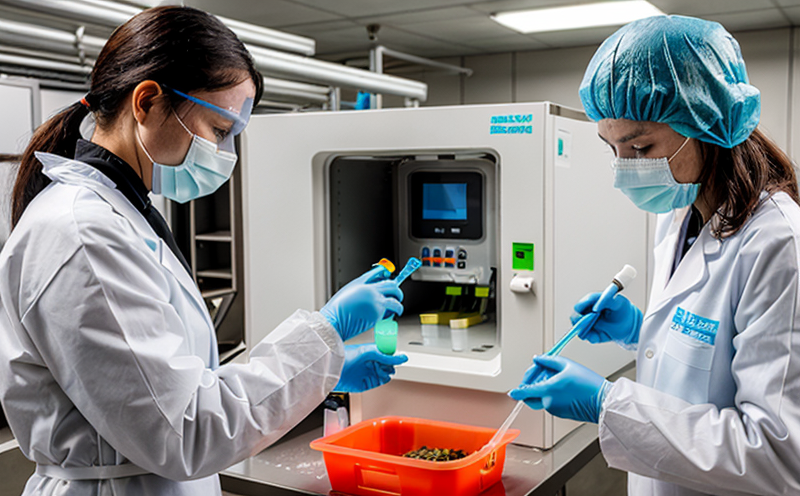ISO 10705-3 Enumeration of Bacteriophages Test in Environment
The ISO 10705 series is widely recognized as a comprehensive guide for the enumeration and characterization of bacteriophages. The third part, specifically ISO 10705-3, focuses on the enumeration of bacteriophages in environmental samples. This test method is crucial for monitoring the presence and activity of phages that can impact water quality, hygiene standards, and overall environmental health.
Bacteriophages are viruses that infect bacteria. Their role in aquatic environments and other ecosystems has significant implications for microbiological safety and ecological balance. The enumeration of these phages helps in assessing the potential risks associated with pathogenic or non-pathogenic bacterial strains within a given environment.
This test is particularly relevant to water treatment plants, wastewater management facilities, environmental research laboratories, and any institution dealing with large-scale water bodies like lakes, rivers, or oceans. By adhering to ISO 10705-3 standards, these entities ensure compliance with international regulatory frameworks and maintain high-quality environmental practices.
The enumeration process involves collecting samples from various sources—surface waters, drinking water supplies, or industrial effluents—and inoculating them into suitable media designed to promote phage replication. Subsequently, the number of plaques formed is counted under controlled conditions. This method provides quantitative data on bacteriophage populations present in environmental matrices.
Understanding the dynamics of bacteriophages within an ecosystem can inform better management strategies for maintaining water safety and reducing the spread of antibiotic-resistant bacteria. For instance, increased levels of certain phages may indicate elevated bacterial load or recent contamination events. Conversely, low phage activity might suggest a stable microbial community.
Implementing ISO 10705-3 ensures accurate measurement techniques aligned with global standards. This standardization not only enhances reliability but also facilitates international collaboration among researchers and practitioners across different countries.
The importance of bacteriophage enumeration cannot be overstated, especially considering the growing concerns about waterborne diseases caused by resistant bacteria. Regular monitoring allows for proactive measures against potential outbreaks while promoting sustainable development practices in water resource management.
Benefits
- Informed Decision-Making: Provides precise quantitative data on bacteriophage populations, aiding informed decision-making regarding environmental health and safety policies.
- Compliance Assurance: Ensures compliance with international standards (ISO 10705-3), facilitating seamless integration into global regulatory frameworks.
- Precise Results: Advanced analytical techniques ensure highly accurate results, enhancing confidence in the reliability of test outcomes.
- Enhanced Safety: Identifies potential risks early on by detecting changes in bacteriophage levels, contributing to improved public health measures.
- Sustainable Practices: Supports sustainable water resource management through regular monitoring and analysis of environmental samples.
The benefits extend beyond mere compliance; they encompass enhanced safety, informed decision-making, precision, and sustainability—critical factors for any organization dealing with large-scale water systems or concerned about environmental health.
At Eurolab, our commitment to excellence in microbiological testing is reflected in the quality of services we provide. Our expertise lies not only in executing ISO 10705-3 accurately but also in offering comprehensive support throughout the entire process—from sample collection guidance to final report delivery.
We employ state-of-the-art laboratories equipped with cutting-edge equipment and trained professionals who adhere strictly to international standards. This ensures that every step of the enumeration procedure follows best practices, yielding reliable results. Our rigorous quality control measures further guarantee consistency and accuracy in all reports issued.
Our extensive experience allows us to offer tailored advice based on specific needs identified during consultation phases, ensuring clients receive personalized solutions suited to their particular circumstances. By leveraging our deep understanding of environmental microbiology, we aim to deliver value-added insights beyond simple enumeration figures.





